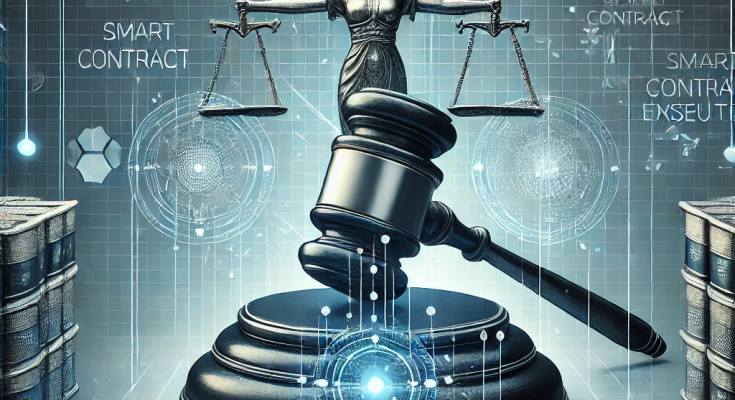Introduction
As the cryptocurrency industry continues to expand, trust and transparency remain critical concerns. While blockchain’s decentralized nature provides an inherent layer of security, disputes—whether due to fraud, contractual disagreements, or technical issues—still occur. Traditional dispute resolution methods are often slow, costly, and opaque, but blockchain-based dispute resolution (DR) offers a promising alternative.
In 2025, blockchain technology is playing a key role in transforming the way conflicts within crypto transactions, smart contracts, and decentralized finance (DeFi) are resolved. By leveraging the transparency, immutability, and security of blockchain, these systems are making the dispute resolution process more efficient, fair, and decentralized.
This article explores how blockchain-based dispute resolution systems work, their advantages over traditional methods, and how they are reshaping the crypto landscape.
1. What is Blockchain-Based Dispute Resolution (DR)?
Blockchain-based dispute resolution (DR) is a new way to resolve conflicts arising from smart contract executions, DeFi transactions, or other crypto-related agreements. Using smart contracts and decentralized governance, these systems enable peer-to-peer dispute resolution with minimal human intervention and without reliance on centralized authorities.
A. Key Features of Blockchain-Based DR
🔹 Immutability – Once a decision is made, the result is written to the blockchain, ensuring that it cannot be altered or tampered with.
🔹 Transparency – All parties involved can view the transaction history, making the process transparent and fair.
🔹 Decentralization – Decisions are made through decentralized autonomous organizations (DAOs) or community-based voting, reducing the risk of biased judgments.
🔹 Smart Contracts – Automatically enforce the resolution terms once a decision is reached, ensuring that agreements are executed without human intervention.
💡 Example: Kleros, a decentralized arbitration platform, leverages blockchain to provide fast and inexpensive arbitration services for DeFi platforms and other blockchain projects.
2. How Blockchain-Based DR Systems Work
Blockchain-based DR platforms utilize smart contracts and cryptographic proofs to offer efficient and transparent dispute resolutions.
A. Smart Contracts and Arbitration
🔹 Smart contracts are self-executing agreements where the terms of the agreement are written directly into code. If one party fails to meet their obligations, the smart contract automatically triggers penalties or refunds based on predefined rules.
🔹 Arbitration services: When a dispute arises, parties can submit the case to a decentralized arbitration network, where blockchain records are used as evidence, and an unbiased decision is reached.
💡 Example: A buyer and seller may enter into a smart contract to exchange cryptocurrency for goods. If the buyer does not receive the product as agreed, the dispute can be automatically sent to an arbitration system to determine the outcome.
B. Community-Based Resolution
Some blockchain-based DR systems rely on community juries to review cases and make binding decisions.
🔹 Jurors are randomly selected from a pool of users, and they are incentivized with tokens for their participation.
🔹 The system uses tokenized rewards to motivate honest and unbiased decision-making, with penalties for malicious behavior.
💡 Example: Kleros employs a jury of crypto users who review evidence and vote on the resolution, providing a decentralized and community-driven approach to conflict resolution.
C. Automated Enforcement via Smart Contracts
Once the dispute resolution is concluded, smart contracts automatically execute the decision—whether it’s a refund, payment, or transfer of assets.
🔹 This automates the execution of decisions, reducing delays associated with manual enforcement.
🔹 No intermediaries are required, which significantly reduces the cost and time involved in traditional dispute resolution.
💡 Example: In the event of a disputed DeFi loan, a smart contract would automatically return the collateral to the rightful party based on the arbitration decision.
3. Benefits of Blockchain-Based Dispute Resolution
Blockchain-based DR offers several advantages over traditional dispute resolution methods:
A. Increased Speed and Efficiency
✅ Decentralized arbitration can resolve disputes much faster than traditional court systems, which may take months or even years.
✅ Smart contracts automate the process, removing the need for manual intervention and speeding up execution.
💡 Example: Traditional arbitration can take weeks to resolve a dispute, while a blockchain-based DR system can resolve it within a few hours.
B. Lower Costs
✅ Blockchain-based DR eliminates the need for expensive legal fees, court costs, and administrative expenses.
✅ Automated systems reduce overhead and allow for more cost-effective resolution methods.
💡 Example: Instead of paying high legal fees, a decentralized arbitration platform offers low transaction fees and transparent cost structures.
C. Transparency and Trust
✅ Public ledgers ensure that every step of the dispute resolution process is visible to all parties involved.
✅ Immutability of blockchain records guarantees that the outcome cannot be altered, promoting trust in the system.
💡 Example: Parties involved in a dispute can track the progress of the case in real time and verify the evidence used to make the decision.
4. The Challenges and Limitations of Blockchain-Based DR
While blockchain-based DR is promising, several challenges remain:
A. Legal Recognition and Enforcement
⚖️ Regulatory clarity is still lacking in many jurisdictions regarding the legality of blockchain-based arbitration decisions.
⚖️ Traditional courts may not always recognize the outcomes of decentralized arbitration, which could hinder adoption.
B. Technical Barriers
🔹 Blockchain scalability remains a challenge, especially when large-scale disputes are involved.
🔹 User experience in decentralized arbitration platforms may need to improve for mass adoption.
💡 Solution: As blockchain technology evolves, layer-2 scaling solutions and improved user interfaces will make blockchain-based DR more accessible and efficient.
5. The Future of Blockchain-Based Dispute Resolution
🔮 Integration with Traditional Legal Systems – As blockchain adoption grows, governments may introduce regulatory frameworks that recognize decentralized arbitration outcomes.
🔮 Increased Adoption in DeFi – As the DeFi space expands, decentralized dispute resolution will become the standard method for resolving conflicts.
🔮 AI-Driven Arbitration – AI may assist in the automated decision-making process, further reducing the need for human intervention and improving accuracy.
💡 Example: Jur, a blockchain-based dispute resolution platform, is already exploring ways to integrate AI-driven smart contracts with its decentralized arbitration system.
Blockchain-based dispute resolution is the future of transparent, fast, and cost-effective conflict resolution in the cryptocurrency industry.
Key Takeaways:
✔️ Blockchain-based DR offers faster, more efficient, and cheaper solutions compared to traditional methods.
✔️ Smart contracts and decentralized arbitration networks provide transparency and trust in the resolution process.
✔️ The adoption of blockchain DR is growing, particularly in DeFi platforms and blockchain projects, but challenges remain in legal recognition and technical barriers.
✔️ In the future, blockchain DR will play an integral role in creating a fairer and more decentralized financial ecosystem.
As the crypto industry matures, blockchain-based dispute resolution will likely become the standard solution for resolving conflicts, making it an essential component of the decentralized future.



